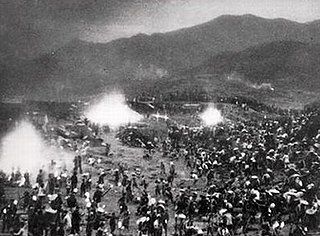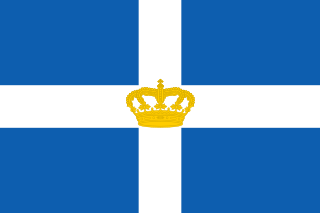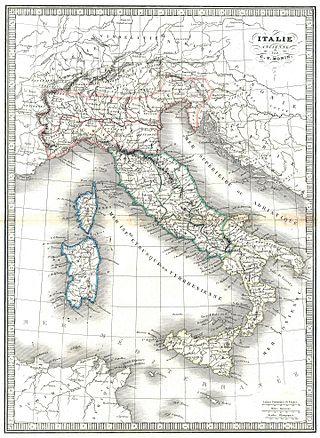Related Research Articles

The Great Leap Forward was an economic and social campaign within the People's Republic of China (PRC) from 1958 to 1962, led by the Chinese Communist Party (CCP). Party Chairman Mao Zedong launched the campaign to reconstruct the country from an agrarian economy into an industrialized society through the formation of people's communes. Millions of people died in China during the Great Leap, with estimates ranging from 15 to 55 million, making the Great Chinese Famine the largest or second-largest famine in human history.

The Vargas Era is the period in the history of Brazil between 1930 and 1946 when the country was governed by president Getúlio Vargas. The period from 1930 to 1937 is known as the Second Brazilian Republic, and the other part of Vargas Era, from 1937 until 1946 is known as the Third Brazilian Republic.

The Virgin Lands campaign was Nikita Khrushchev's 1953 plan to dramatically boost the Soviet Union's agricultural production in order to alleviate the food shortages plaguing the Soviet populace.

The Pontine Marshes is an approximately quadrangular area of former marshland in the Lazio Region of central Italy, extending along the coast southeast of Rome about 45 km (28 mi) from just east of Anzio to Terracina, varying in distance inland between the Tyrrhenian Sea and the Volscian Mountains from 15 to 25 km. The northwestern border runs approximately from the mouth of the river Astura along the river and from its upper reaches to Cori in the Monti Lepini.

The economy of Fascist Italy refers to the economy in the Kingdom of Italy under Fascism between 1922 and 1943. Italy had emerged from World War I in a poor and weakened condition and, after the war, suffered inflation, massive debts and an extended depression. By 1920, the economy was in a massive convulsion, with mass unemployment, food shortages, strikes, etc. That conflagration of viewpoints can be exemplified by the so-called Biennio Rosso.

The 4th of August Regime, commonly also known as the Metaxas regime, was an authoritarian regime under the leadership of General Ioannis Metaxas that ruled the Kingdom of Greece from 1936 to 1941.

Italian fascism, also classical fascism and Fascism, is the original fascist ideology, which Giovanni Gentile and Benito Mussolini developed in Italy. The ideology of Italian Fascism is associated with a series of political parties led by Mussolini: the National Fascist Party (PNF), which governed the Kingdom of Italy from 1922 until 1943, and the Republican Fascist Party (PFR), which governed the Italian Social Republic from 1943 to 1945. Italian fascism also is associated with the post–war Italian Social Movement (MSI) and later Italian neo-fascist political organisations.

After the collapse of a short-lived Communist regime, according to historian István Deák:

The Kingdom of Italy was a state that existed from 17 March 1861, when Victor Emmanuel II of Sardinia was proclaimed King of Italy, until 10 June 1946, when the monarchy was abolished, following civil discontent that led to an institutional referendum on 2 June 1946. This resulted in a modern Italian Republic. The kingdom was established through the unification of several states over a decades-long process, called the Risorgimento. That process was influenced by the Savoy-led Kingdom of Sardinia, which was one of Italy's legal predecessor states.

For millennia, agriculture has played an important role in the Chinese economy and society. By the time the People's Republic of China was established in 1949, virtually all arable land was under cultivation; irrigation and drainage systems constructed centuries earlier and intensive farming practices already produced relatively high yields. But little prime virgin land was available to support population growth and economic development. However, after a decline in production as a result of the Great Leap Forward (1958–60), agricultural reforms implemented in the 1980s increased yields and promised even greater future production from existing cultivated land.

The Battle for Grain, also known as the Battle for Wheat, was a propaganda campaign launched in 1925 during the fascist regime of Italy by Benito Mussolini, with the aim of gaining self-sufficiency in wheat production and freeing Italy from the "slavery of foreign bread". This campaign was successful in increasing wheat output and lowering the trade balance deficit, but was ultimately economically counter-productive for Italy's agricultural sector as farmers who grew other produce had to clear their land for grain cultivation which decreased exports and thus resulted in higher food prices which placed Italian families under financial strain.
The Italian economic battles were a series of economic policies undertaken by the National Fascist Party in Italy during the 1920s and 1930s. They were designed to increase the potential of Italy becoming a great power by reclaiming land, placing emphasis on home-grown produce and having a strong currency.
The Battle for the Lira was an economic policy undertaken by the Fascists in Italy during the 1920s as an attempt to raise the claims of Italy becoming a great power.
The Battle for Land, started in 1928 in Italy by Benito Mussolini, aimed to clear marshland and make it suitable for farming, as well as reclaiming land and reducing health risks.
The Battle for Births was one of four economic battles that took place in Fascist Italy (1922–1943), the others being the Battle for Grain, the Battle for the Lira, and the Battle for Land. Prime Minister Benito Mussolini, often known as Il Duce, envisioned an Italian Empire to rival that of the Romans, and in order to carry out this objective, foresaw the need to increase the population. Mussolini pursued an often aggressive foreign policy to achieve his colonial aims: the Italian army invaded Abyssinia in October 1935. The phrase "Battle for Births" was also used, in contemporary sources, to describe policies developed in Nazi Germany.

The Agricultural policy of fascism in Italy was a series of complex measures and laws designed and enforced during Italian Fascism, as a move towards attempted autarky, specifically by Benito Mussolini following the Battle for Grain and the 1935 invasion of Abyssinia and subsequent trade embargoes.

Arrigo Serpieri was an economist, politician, and agronomist. Serpieri was an expert in agricultural economics, and was undersecretary of the Ministry of Agriculture during the Fascist period.
The Great Turn or Great Break was the radical change in the economic policy of the USSR from 1928 to 1929, primarily consisting of the process by which the New Economic Policy (NEP) of 1921 was abandoned in favor of the acceleration of collectivization and industrialization and also a cultural revolution. The term came from the title of Joseph Stalin's article "Year of the Great Turn" published on November 7, 1929, the 12th anniversary of the October Revolution. David R. Marples argues that the era of the Great Break lasted until 1934.

Fascist Italy is a term which is used to describe the Kingdom of Italy when it was governed by the National Fascist Party from 1922 to 1943 with Benito Mussolini as prime minister and dictator. The Italian Fascists imposed totalitarian rule and they also crushed political opposition, while they simultaneously promoted economic modernization, traditional social values and a rapprochement with the Roman Catholic Church.
The term Bocci-bocci is an Italian linguistic corruption of the word Bolshevism, meaning to "Break everything", used particularly in Florence and Tuscany during the Biennio Rosso, in which there was a number of mass strikes against high costs of living, self-management experiments towards autarky through land and factory occupation, and in Turin and Milan, workers councils were formed with factory occupation under the leadership of anarcho-syndicalists.
References
- ↑ "Saving the Nation: Economic Modernity in Republican China" by Margherita Zanasi p. 77
- ↑ Francesco Perfetti and Giuseppe Parlato, Fascist syndicalism. From the "Great Depression" the fall of the regime, 1930-1943, Bonacci, Rome, 1989.
- ↑ Alberto and Maurizio Aquarone Vernassa, The Fascist regime, Oxford University Press, 1976.
- ↑ Great Augustus, Teresa Alquati. Heroes and scoundrels: 150 years of counterstory, Politeia editions, Turin 2011, pp. 96-97.
- ↑ Institute Grasci, Historical Studies, Volume 25, 1984.